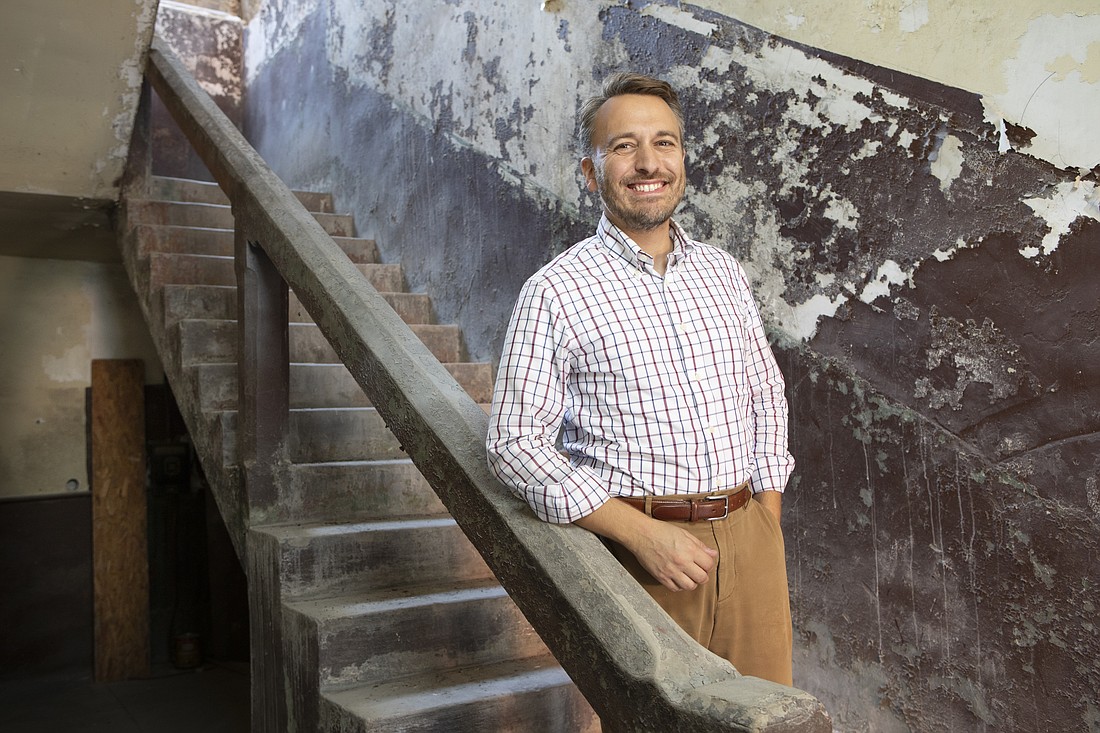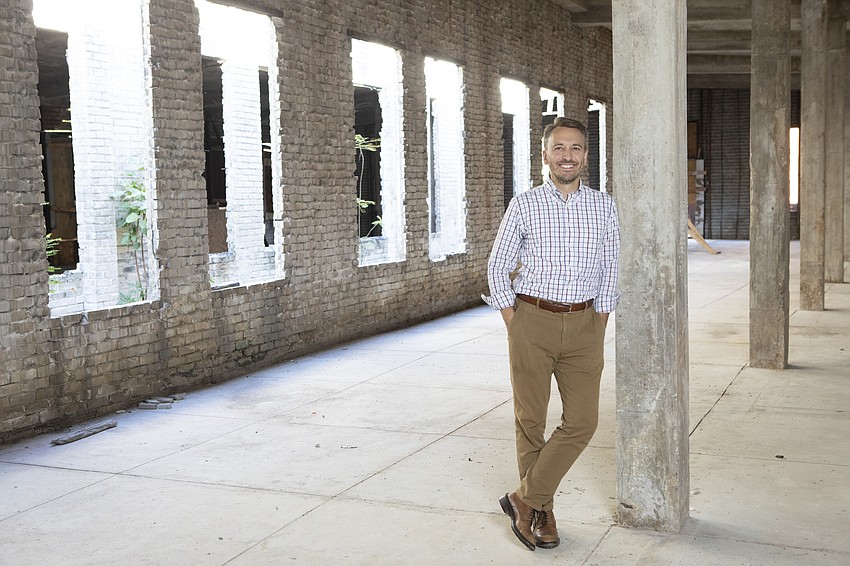- April 17, 2025
-
-
Loading

Loading

Located directly across the street from J.C. Newman Cigar Co., one of Ybor City’s last remaining original cigar factories, the two-story Sanchez y Haya Hotel was built in 1910. That makes it one of the oldest commercial buildings not just in Tampa, but all of Florida. It originally opened as a small hotel for cigar factory workers, with an on-site coffee shop and restaurant. But it became a target of federal agents during the Prohibition area, when owner Maximo Gonzalez and several co-conspirators were arrested for their role in an illegal alcohol smuggling operation.
Built in a Spanish mission architectural style, the property has had many incarnations over the decades — at one point, it housed a grocery and sundries store and even a brewery. After Gonzalez’s death in 1964, it was sold and became known as the Chip-Inn Bar, gaining infamy as a site of violent crime from the 1960s, through early 2000s. The intervening years were not kind to the building, and it was abandoned and boarded up, becoming home to a large colony of bats before J.C. Newman Cigar Co. bought it in 2020.
“This building was a hub of activity for the neighborhood,” says Drew Newman, who represents the fourth generation of his family to own and operate the company’s El Reloj cigar factory. “But when I was a kid, it was the seediest of dive bars. It was so run down.”
When the Sanchez y Haya Hotel reopens in 2025 — hopefully in time for J.C. Newman Cigar Co.’s 100th anniversary in May, but probably not until later in the year, Drew Newman says — it will ooze with cool. The hotel’s original bar and several of its original doors and other fixtures have been saved from the scrap heap and will be refurbished, giving the first floor a totally authentic Roaring Twenties look and feel. “We’ll try to reuse as much [original material] as we can,” Drew Newman says.
One difference will be the inclusion of a cigar bar and lounge where El Reloj customers can enjoy their purchases. The cigar bar will be on the opposite side of the first floor from the café, to accommodate customers who prefer to eat in a smoke-free environment. The lounge will also feature an outdoor patio where cigar aficionados can enjoy one of J.C. Newman’s finest when the weather allows.
The ground level’s nearly floor-to-ceiling windows will also be restored, allowing an abundance of natural light to enter the building.

Another change will be found in the second floor’s hotel rooms, which were originally conceived as utilitarian accommodations with shared bathrooms. Catering mainly to tourists, the hotel is going to offer an “elevated” experience for guests, Drew Newman says.
“It’s going to be upscale, just 12 rooms,” he adds. “A small but high-end boutique property … because we want to put the best foot forward for the cigar industry, for Ybor City and City of Tampa. We want people to leave here having appreciation and respect for 137 years of cigar rolling in Tampa.”
And yes, he says, each hotel room will have its own bathroom.
First Drew Newman had to overcome the doubts of his father, Eric Newman, and uncle Bobby Newman, who co-own the company. They favored razing the Sanchez y Haya Hotel and building an entirely new structure on the site.
“That would have been the easier and cheaper way,” he says. “But it’s got a great story and history. I’m excited we get the chance to restore this beautiful building, bring it back to life and use it to tell the Ybor City story.”
Another major challenge was the building’s 10,000-strong bat colony. The bats were humanely moved to purpose-built bat houses on a nearby vacant lot, owned by J.C. Newman, that has since been turned into a park dedicated to the thousands of people who’ve worked in the Ybor City cigar industry since 1886. “Before we could touch the building, we had to relocate the bats and give them a nice place to live,” Drew Newman says.
Despite being one of the first buildings in Tampa to be built primarily with reinforced concrete, the Sanchez y Haya Hotel was on the verge of collapse when J.C. Newman Cigar Co. bought it. Worried the structure wouldn’t withstand the impact of a major hurricane, the company quickly moved to shore up the walls, installing large steel rods anchored in concrete slabs as temporary reinforcements until restoration work can begin in earnest.
“When Hurricane Ian came through last year, at that point in time it was supposed to make landfall right here in Tampa,” Drew Newman says. “I was certain this building was gone. It was in such bad shape that it would not have survived a direct hit.”
The City of Tampa’s Barrio Latino Commission, which acts as Ybor City’s historic preservation board, is scheduled to review the project’s site plan and renderings in January. If approved to move ahead, barring any unforeseen delays, Drew Newman expects renovations to commence in summer 2024.